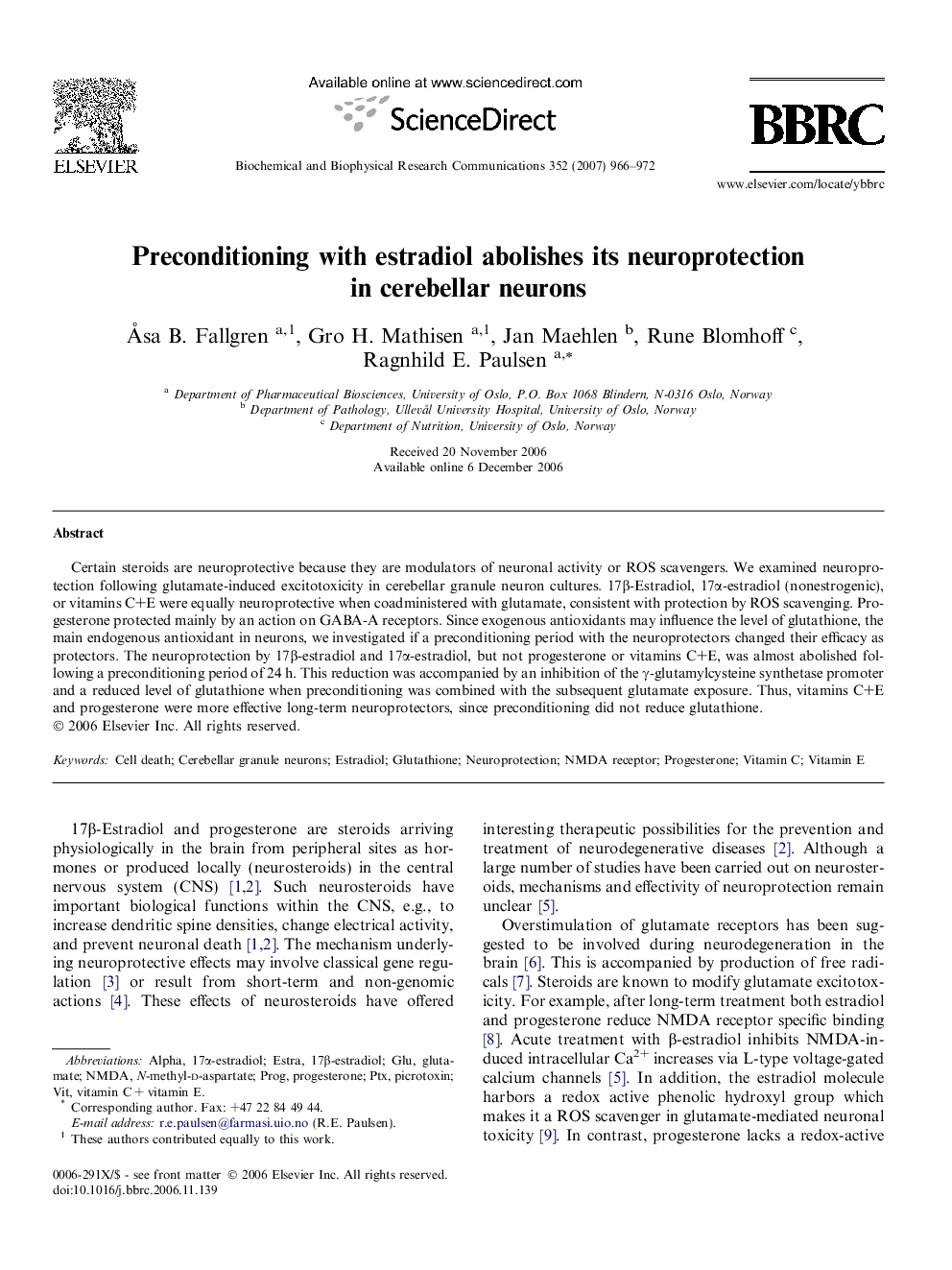| Article ID | Journal | Published Year | Pages | File Type |
|---|---|---|---|---|
| 1939758 | Biochemical and Biophysical Research Communications | 2007 | 7 Pages |
Certain steroids are neuroprotective because they are modulators of neuronal activity or ROS scavengers. We examined neuroprotection following glutamate-induced excitotoxicity in cerebellar granule neuron cultures. 17β-Estradiol, 17α-estradiol (nonestrogenic), or vitamins C+E were equally neuroprotective when coadministered with glutamate, consistent with protection by ROS scavenging. Progesterone protected mainly by an action on GABA-A receptors. Since exogenous antioxidants may influence the level of glutathione, the main endogenous antioxidant in neurons, we investigated if a preconditioning period with the neuroprotectors changed their efficacy as protectors. The neuroprotection by 17β-estradiol and 17α-estradiol, but not progesterone or vitamins C+E, was almost abolished following a preconditioning period of 24 h. This reduction was accompanied by an inhibition of the γ-glutamylcysteine synthetase promoter, and a reduced level of glutathione when preconditioning was combined with the subsequent glutamate exposure. Thus, vitamins C+E and progesterone were more effective long-term neuroprotectors, since preconditioning did not reduce glutathione.
